Everyone wants to have white and beautiful teeth and some people might forget how important it is to have healthy teeth in the first place. Whitening your teeth is totally okay but every dental professional will advise you to take care of the health of your mouth first.
Maybe you are not thinking about whitening at all but you are getting sick of all the toothaches you’ve already had in the past. Or you might be scared to get a procedure done at the dentist and wish you could have prevented this.
Your teeth and gums are part of your physical body and are more important for your general health than you might think. Take good care of them and you will reap the benefits of having a good set of teeth.
Let me give you 10 tips for healthy teeth to prevent toothaches and expensive dental visits.
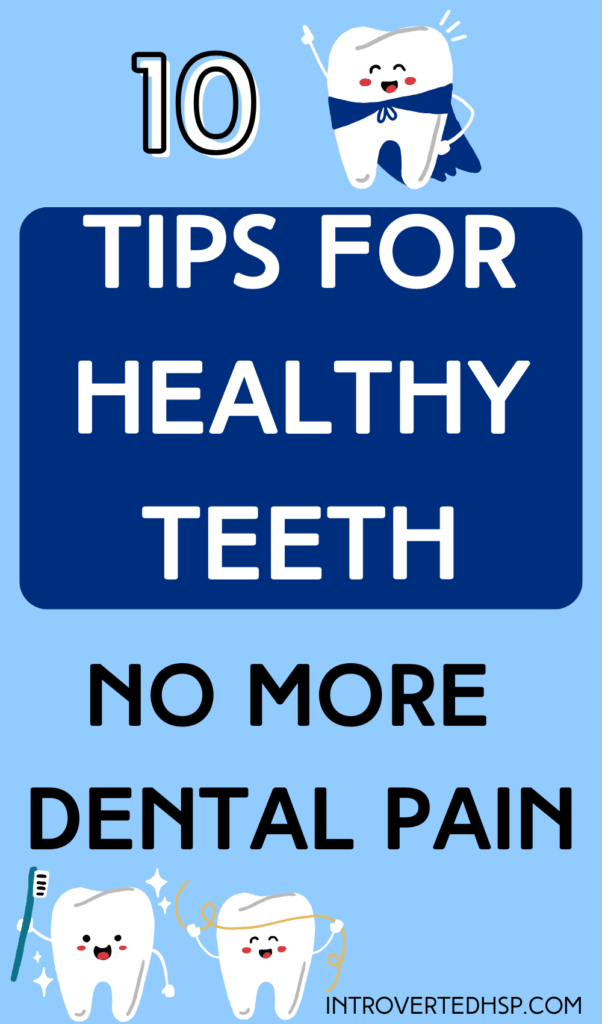
This post may contain affiliate links, which means if you make a purchase through these links, I may receive a small commission at no extra cost to you. As an Amazon Associate I earn from qualifying purchases. Please read my disclosure for more info.
10 Tips for Healthy Teeth
1. Brush your teeth twice a day
Tip number one, I think this is a very obvious one, but as not everybody does this, I think I should point it out. Brushing your teeth twice a day for at least two minutes at a time is crucial for a set of healthy teeth.
Two minutes twice a day is not that much time. Most dentists recommend using an electric toothbrush, as they have proven in studies that they can remove more plaque in less time (like 6 times as fast as a manual toothbrush!).
Electric toothbrushes don’t have to be very expensive either, they should have a round head to be the most effective and oscillate and rotate. Some toothbrushes have a built-in pressure sensor. This is recommended for people who brush too hard and are brushing away their gums.
Let me also share the link to a more affordable but still very good electric toothbrush, this toothbrush also has a pressure sensor but it doesn’t light up like the more expensive ones, it stops when you are brushing too hard which is also very good.
A soft toothbrush is almost always the best option for everyone. With a medium or hard-bristled toothbrush, you will have more chances to damage your teeth and gums.
Make sure to change your toothbrush when the bristles of the head aren’t standing straight anymore. A guideline is replacing it after 3 months of use.
2. Floss everyday
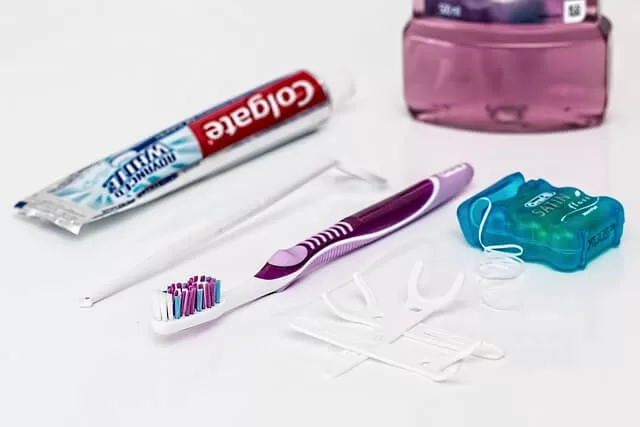
Almost equally important to brushing your teeth is flossing in between them!
When you only brush your teeth, there are a lot of tooth surfaces that are never cleaned because a toothbrush simply cannot reach them. This is where cavities are most likely to form! The most frequent places where dentists find cavities are between teeth, the place where they touch each other, and deep fissures on the chewing surface.
You can’t control the depth of your fissures so your dentist will have to seal them if they are too deep to clean properly, but you can clean between your teeth every day! Make it a habit, it will save you some teeth and some money over time.
Read more about cleaning in between your teeth in a blog post I wrote earlier on. Practicing the right technique is crucial for success!
A good floss product that I would recommend is Oral B Satin Floss, this floss is great when you have very little space between your teeth or when they are crowded because you never had braces.
3. Wear a nightguard if you grind your teeth
Some people seem to do everything right. They have good eating habits and perfect oral hygiene but there are still some things they might be doing wrong. You might notice that your teeth are shortening, how the hell is this possible?
A lot of people grind their teeth at night. Most people don’t even know that they do this and therefore it is even harder to believe that you have a problem. Your dentist probably knows you’re a teeth grinder before you do because they can see wear facets on your teeth.
When you do grind your teeth at night, it’s a good idea to protect them from themselves as they are super strong and can damage each other. You can do this by wearing a night guard. The best night guards are the ones your dentist makes that are custom-made for your teeth.
When you place an appliance between your teeth at night, you can’t damage them because it will protect the teeth of the other jaw against wear.
So if you see that your teeth are shortening in length or if you have complaints about your jaw joint, consider wearing an appliance to protect your healthy teeth. Talk about this with your dentist before you buy something from the internet.
4. Eat not more frequently than 5 times a day
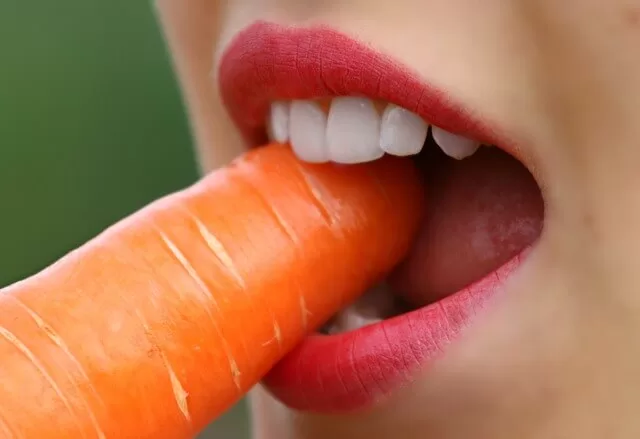
Every time you eat something, your teeth will get an acidic attack. This happens because the bacteria in your mouth produce acid when you eat something or the food you eat might be sour itself. Anyway, the acid can do damage to your teeth if you don’t give them enough time to regain their strength.
When you eat something, the pH in your mouth drops and when it falls below a certain pH, your teeth will start to demineralize. When this happens, it is important to give your teeth 30 minutes to 2 hours to remineralize again.
You can imagine it like this. Your teeth have two layers, the outer and inner layers. When you eat something, the outer layer loses tiny particles because of the acid attack but they keep hanging around for a bit, and when you give it enough time, the outer layer will start to put those particles back into place. So be patient and don’t eat too frequently.
This is also why you should wait at least 30 minutes after breakfast to brush your teeth or brush them before eating breakfast. If you brush them straight after eating breakfast, all the good minerals from the outer layer of the tooth will be brushed away. What a shame.
They say cavities are formed from eating too much sweets and this is true because the bacteria in your mouth love sweet stuff to produce their acid to attack your teeth. So keep yourself to 5 acidic attacks a day by eating no more frequently than this.
5. Don’t rinse after brushing your teeth
This tip will keep the toothpaste and the fluoride more in its place after brushing. If you rinse thoroughly with water every time you brush your teeth, you wash all the goods away.
You want the toothpaste to stay in place a little longer to have the most effect on your teeth. The fluoride will have more time to be absorbed by your teeth this way.
Pick a toothpaste with a flavor you like, this way you will be less tempted to rinse every bit of it off until there is nothing left. There are so many different toothpastes on the market right now. If you pick a brand with a nice flavor or texture, you will be more likely to brush at least twice a day. But make sure it contains the right amount of fluoride as well!
6. Use toothpaste with 1450 ppm fluoride
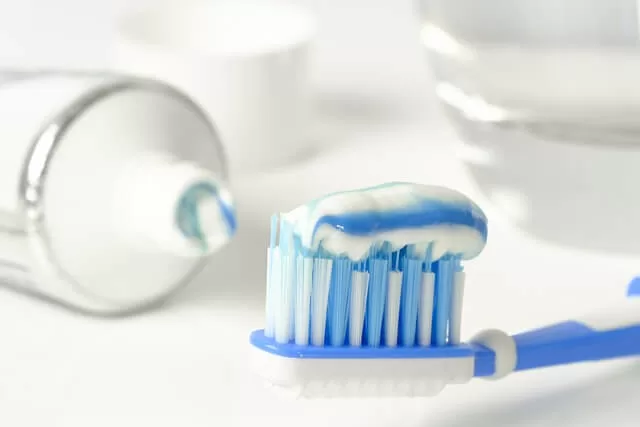
Another obvious tip I hope but something not everyone knows or listens to. To keep your teeth healthy, you should use toothpaste that contains enough fluoride. The recommended amount for adults is 1450 parts per million Fluoride. You can read it on the tube as 1450ppm F.
In some countries, there is too much fluoride in the water, which can cause fluorosis. This is not good as it gives stains to your teeth, especially when you are growing up and your teeth are developing, you shouldn’t get too much fluoride in.
But if you follow the guidelines for brushing your teeth, there shouldn’t be a problem. It’s actually the only thing that can help prevent cavities from forming. So you should use it daily!
Just don’t eat it like it’s candy. Use the size of a pea every time you brush your teeth and you should be fine.
Be aware that children need lower doses and smaller amounts for healthy teeth!
Most toothpastes contain fluoride but some of them don’t so always check before you buy a new brand.
7. Use the right brushing technique
So many people don’t brush the right way! And to be fair, it’s not as easy as it looks to do a good job. You should keep a lot of things in consideration.
Every tooth has 3 surfaces to brush so make sure to get them all. The chewing surface, the surface against the cheeks, and the surface against the palate or tongue. Inside, outside, upside. Brush them all.
When you are using an electric toothbrush, let the brush do the work and just move it from one tooth to another without making a brushing movement with your hand. Place the toothbrush against the gums and try to clean every bit of the surface that you can reach. Aim for a 45-degree angle against the gums.
Watch this electric toothbrush instruction video to make sure you are using the right technique with an electric toothbrush.
Here is an instruction video for brushing your teeth manually for people who can not stand electric toothbrushes.
8. Drink plenty of water
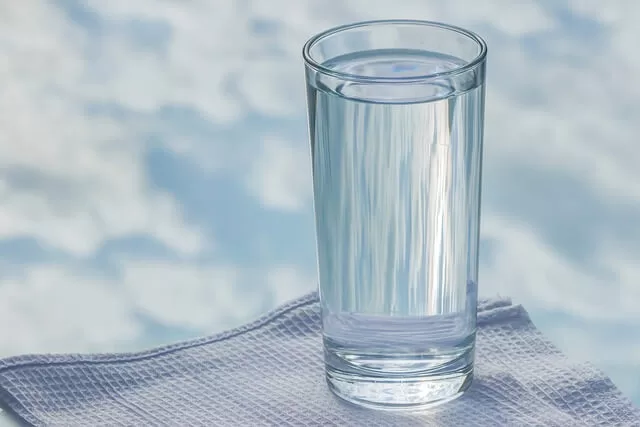
Water and cowmilk should be your beverages of choice if you want healthy teeth. Try to drink water for most of your fluids during the day.
Every other beverage is more acidic than those two and can do damage to your teeth if you drink too much of them. Your healthy teeth don’t want you to drink soda and sugary drinks all day long. In fact, it’s not even good to drink those things once a day.
If you want to drink soda or sugary drinks, try to drink them with your meals instead of in between meal times. Drinking them with meals is better because then your teeth will already get an acidic attack so they will be attacked either way and not an extra moment of your day.
You can also drink through straws to help protect your teeth against the acid. If you finish your drink, rinse with water to clean your teeth.
Even water with a little bit of syrup for the taste can do damage to your teeth. Learn to drink plain water to save your teeth.
9. Allow your dentist to take X-rays
Healthy teeth are worth a lot of money. When your dentist wants to take X-rays to find tooth decay in an early stage, let them do it, please!
Do you know why dentists take X-rays every or every other year? They do it to see things like cavities in an early stage or to follow up on small cavities and bone loss before it gets severe. This way they can treat a small cavity and prevent you from having toothaches and root canal treatments or even extractions.
Maybe you think, well can’t they see those things without taking X-rays? The answer is sometimes. But often the cavities that are seen with the naked eye are a lot bigger than the ones they can see already with X-rays. Do you want to take that risk? I wouldn’t!
The amount of radiation that you will get from a tiny X-ray is so little, that you really shouldn’t worry about it. You should be a little worried if your dentist never takes X-rays, it might be time to find another one.
10. Visit your dentist at least once a year!
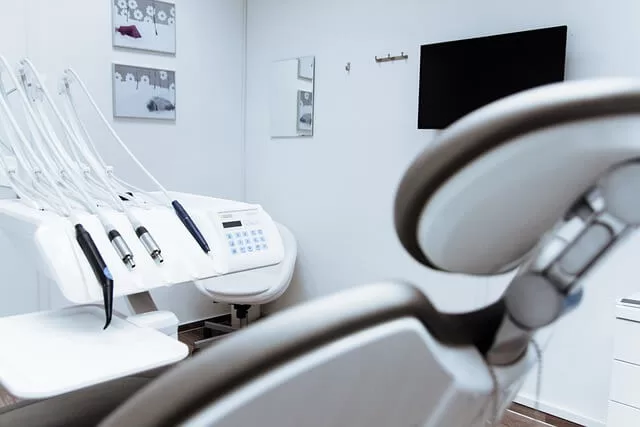
From the age of 3 years old, you should visit the dentist every single year until you die. For you to have healthy teeth, regular dental check-ups and professional cleanings are a necessity.
You can of course have healthy teeth without seeing a dentist regularly as well, but most people need to see a dentist every year. Prevention and check-ups don’t cost you a lot of money, the bigger dental costs arrive when you neglect taking care of your teeth and forget to see your dentist once a year.
Having your teeth cleaned every year isn’t a luxury or a torture, it’s something that has to be done. Most people, even those who practice good oral hygiene will have some tartar and calculus build up over time. You can’t remove this correctly yourself so you need the help of a dental professional.
Dental professionals take care of your teeth and give you tips to keep your teeth healthy for as long as possible. Prevention is key to a life without toothaches!
Also, be nice to your dental professional, they have to hear every day how people hate coming to see them and are working in terrible postures to give you the care you need. I know they earn a good paycheck, but they work very hard for it! Don’t forget your dentist has feelings too!
Healthy Teeth For Life
If you want healthy teeth, you have to take good care of them. Following the tips mentioned above will help you greatly with this.
When you get older, your teeth will undergo a natural wear and this is nothing to worry about. Because of the thinning of the teeth, they will become a bit more yellow as the second tooth layer is more yellow than the shiny white enamel.
All the other things that can happen to your teeth like tooth decay, gum disease, etc. are more on you.
Take care of those pearly whites if you want to keep them.
If you have any more questions, I would love to help you out! I worked in the dental field myself so I know a thing or two about healthy teeth. I can give good general advice but in most cases, it is best to see your dentist and ask the questions directly to him or her as they can look into your mouth and take X-rays.
Keep brushing and flossing!
